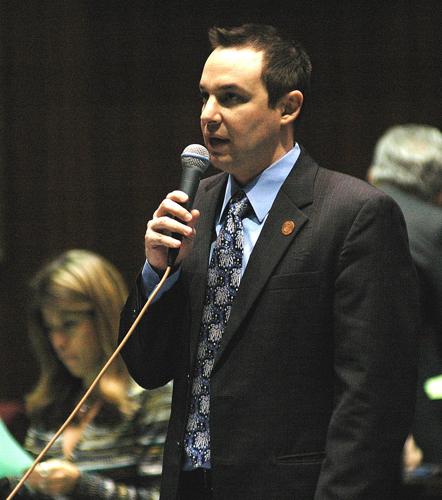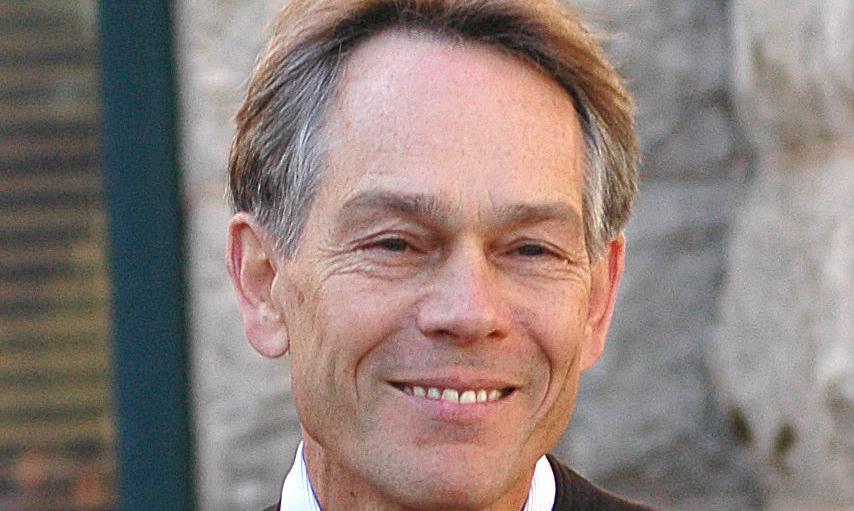PHOENIX — State lawmakers are moving to give Gov. Doug Ducey a chance to put two more justices on the Arizona Supreme Court.
Legislation awaiting a Senate vote would expand the state’s high court to seven, the first boost in more than half a decade. Rep. J.D. Mesnard, R-Chandler, who is behind HB 2537, said it’s about “good government.”
“I’m a strong believer in spreading power out, not concentrating power in the hands of a few,” he said Wednesday. “More minds is better than fewer minds.”
And the fact that the legislation is coming with a Republican governor in power, he said, is just a bonus.
“I trust and am comfortable with who would be his choices,” Mesnard said.
But the whole issue has become more complex and is now wrapped up in some closed-door political wheeling and dealing.
Chief Justice Scott Bales is on record as saying neither the state’s population nor the caseload justifies two more justices and the costs that go along with that.
Heather Murphy, the court’s press aide, repeated that assertion Wednesday. And she said the other four justices, all of them Republicans, share that view.
But Murphy said there was a split vote of the Arizona Judicial Council, composed of judges, attorneys and laypeople, directing Bales to try to cut a deal with lawmakers: The court would accept the two justices he says are not needed in exchange for some additional funding he says the court does need.
So Bales did just that.
Only thing is, the deal that the council agreed to take is not what lawmakers put into the budget.
Murphy said the council sought some funds for needed automation and an immediate 3 percent increase in pay for all judges in the state. The budget instead has a 3 percent raise, but phased in over two years. And instead of the automation, lawmakers are offering to provide additional probation officers in exchange for the new justices.
Bales would not comment Wednesday after the spending side of the plan — complete with the language making it contingent on Mesnard’s bill becoming law — was approved by the Senate Appropriations Committee. Murphy said talks continue.
“His position is he will continue to work with members of the Legislature and our legislative staff to come to something that might be a workable compromise,” she said.
That still leaves the question of why the push.
“The bill was not driven by any particular court opinion or indictment of anything they’ve done,” Mesnard said. But he said there is a desire by some to have the high court review more cases.
The Arizona Supreme Court is like the U.S. Supreme Court: Most petitions for review are summarily disposed of in orders upholding the opinions of lower appellate courts.
Cases that do get reviewed can involve situations where the justices think an appellate court got it wrong. And, at both the federal and state level, the high court weighs in when different appellate court reach conflicting conclusions.
That’s the case with two cases the state Supreme Court is hearing next month where one appellate court said the smell of marijuana is insufficient for police to get a search warrant while another appellate panel reached exactly the opposite result.
Mesnard said opening up two new positions also could increase diversity on the bench. There are currently four white males and one white female.
He acknowledged, though, that Ducey, in the one appointment he has gotten to make so far, chose Clint Bolick, another white male. But Mesnard said that’s not necessarily the governor’s fault, pointing out the Arizona Constitution requires the governor to fill vacancies from a nomination list prepared by the Commission on Appellate Court Appointments.
“To evaluate his desire for diversity based on one court appointment I don’t think is fair,” Mesnard said. “I don’t think I’m going to judge him on one appointment — who I actually thought was a good appointment.”
As it turns out, Mesnard said he does not support the move by his colleagues to link the issues of the court’s financial needs with expanding the bench. And he was particularly critical of the idea of linking providing the courts with additional probation officers to his legislation.
But Mesnard said he recognizes that a deal may be necessary for each side to get what it wants.
“I’m open to compromise.”







